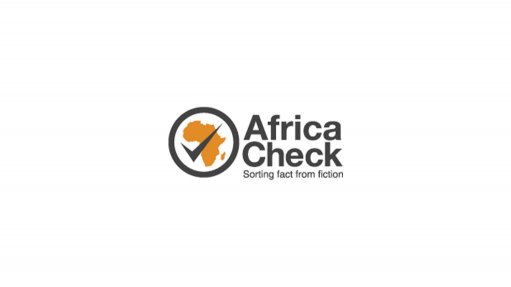
After months of an often fractious stalemate, in September 2020 Kenya’s senate hammered out a deal on how revenue would be shared between the country’s two levels of government.
In August, at the height of the deadlock, former prime minister Raila Odinga returned to a familiar talking point to argue for establishing a third tier of government.
Building on this in an interview with Citizen TV, Odinga, who is also an African Union envoy, said Kenya could solve the recurring battle over how to share revenue if it looked to Nigeria for lessons.
Nigeria, he said, had a local, state and federal system of government. “In terms of revenue share, 20% of the revenue goes to the local, 35% goes to the state and 45% goes to the federal governments … and it works perfectly well,” Odinga said.
We checked if he was on the mark about how revenue is shared in Africa’s largest economy.
Claim: In Nigeria … in terms of revenue share, 20% goes to the local government.
Verdict: correct
We asked Dennis Onyango, Odinga’s spokesperson, for the source of the former leader’s claims. We will update this report with his response.
In line with its constitution, Nigeria has a federal capital authority, 36 states and 768 local government authorities. There are also six area councils.
The Revenue Mobilisation, Allocation and Fiscal Commission proposes a formula for how revenue is to be shared between the three levels. This is then approved by the national assembly.
The revenue formula was first used in 1982 when the Nigeria Revenue Allocation Act came into effect. The law stipulated that 56% of funds would go to the federal government, 24% to states and 20% to local governments.
The current formula can be traced to a March 2004 circular from the finance ministry. It has remained at these levels since.
“The revenue allocation formula is still 52.68%, 26.72% and 20.6%,” Prof Sherifdeen Tella, professor of economics at Olabisi Onabanjo University told Africa Check.
Before the revenue is split an amount “not less than 13%” is deducted and shared among the oil producing states based on their production levels.
According to data from Nigeria’s extractive industries transparency initiative, a government agency supervised by the president’s office, local governments get 20.6% of national revenue.
We therefore rate Odinga as correct on this claim.
Recent local government allocations at 20%
The most recent full year data from the budget office shows that in 2019, local governments received N1.04-trillion of the N5.05-trillion available for sharing among the three levels of government.
And in the first quarter of 2020, local governments got N441.44-billion of the N2.14-trillion available.
Both these amounts work out to about 20% for local governments. (Note: Value-added tax is also shared among the three levels of government, using a different formula. Local governments get 35% of VAT revenue, state governments 50% and the federal government 15%.)
Claim: 35% of revenue goes to states.
Verdict: incorrect
Data from Nigeria’s extractive industries transparency initiative shows that 26.72% is reserved for the state governments, not the 35% Odinga claimed.
We therefore rate this claim as incorrect.
In 2019, of the N5.05-trillion available for sharing, states got N1.35-trillion. In the first quarter of 2020, states received N572.59-billion of the N2.14-trillion available.
Both these allocations work out to 26.72%, in keeping with the formula.
Claim: 45% of revenue goes to the federal governments.
Verdict: incorrect
Odinga’s claim of 45% is not accurate. Official data shows the federal government gets more than half of the total revenue.
In 2019, data from the budget office shows the federal government received N2.66-trillion of the N5.05-trillion available for sharing. In the first quarter of 2020 it got N1.13-trillion out of N2.14-trillion.
These amounts tally with the 52.68% set out in the sharing formula.
Does Nigeria’s revenue sharing model work ‘perfectly well’?
Raila Odinga’s assertion that the Nigerian revenue sharing formula “works perfectly” is contested.
Gazie Okpara, a professor of marketing at Abia State University in southeast Nigeria whose interests include social policy, said the formula was imperfect because how the funds were spent was not transparent.
“Each level of government should always give an account of how funds were spent,” he said, an audit that should be provided for in the constitution.
Prof Sherifdeen Tella, a professor of economics at Olabisi Onabanjo University in southwestern Nigeria, told Africa Check that in his view, allocations to state and local governments, and especially the former, should be increased. “What is allocated to these two tiers of government is not sufficient.”
Matthew Akintayo is a professor at the University of Ibadan, also in southwestern Nigeria. One of his focus areas is the economics of education. He told Africa Check that the sharing formula should be restructured.
“A bulk or vast fraction of resources should be allocated to the state and local government because both arms of government are closer to the grassroots,” he said. He added that state governors should be given more leeway to manage their resources.
John Kinuthia, a senior programme officer at the International Budget Partnership, told Africa Check that Odinga should also have considered the nature of devolved functions when drawing comparisons.
It was difficult to compare Kenyan counties with Nigerian states, partly because they had different functions, Kinuthia said. He gave the example of education.
“In Nigeria there are functions like education that are devolved, which is why you see a bigger proportion of resources at the subnational level compared to Kenya. In Kenya, education is still at the national level.”
Researched by Vincent Ng’ethe in Nairobi and Motunrayo Joel in Lagos, Africa Check, a non-partisan fact-checking organisation. View the original piece on their website